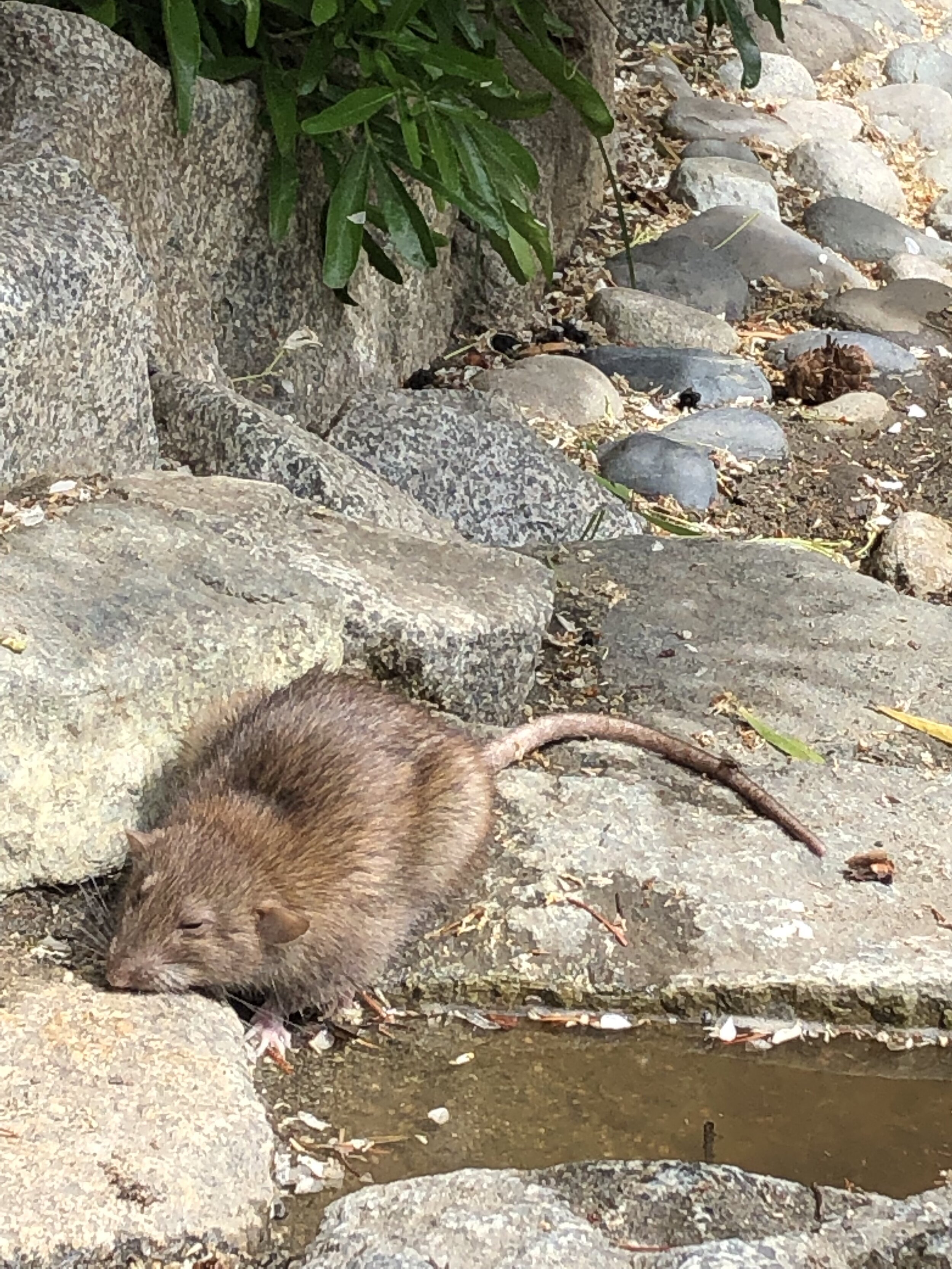Pedagogies of Diplomatic Proposals
We witnessed a rat violently shaking, dying on the sidewalk (Nelson, 2018). Curiosity, sadness, compassion, and questions filled that moment and the months to come. Stengers (2008) writes, “poisoning is easy but nurturing is a craft…” (p. 38). We suspected rodenticides were the culprit, an ingestible poison commonly used within the municipality to kill those considered pests.
vanDooren (2019) proposes, “diplomacy [as] the subtle art of working-with-and-against another to produce mutually liveable worlds” (p. 158), as part of the messy, creative work involved in demanding recognition of more-than-human subjectivities, if new ways of response-ability and attentiveness are to emerge, offering potentiality for attuned and enriched ways of cohabitating.
Rats move behind the shed as construction disrupts burrows. Some centres choose live traps and relocation, but we apprehensively create a safe passage from the playground to the ravine, knowing rats hold family bonds. Giving space when they are on the move and quickly clearing food waste from the ground so they may stay their course is one, sometimes accepted, proposal within this entangled meshwork of relations. One day we notice a rat sluggish on the rocks, eyes partially closed, breathing laboured, clearly dying.
How might crafting diplomatic proposals foreground how we come to know and respond to the complexities of our everyday interconnected circumstances?
Such proposals are asymmetrical, drawing attention to our differing challenges, asking us to collectively think with more-than-human to create common accounts of the worlds (Stengers, 2005, 2014). They create cracks in our habitual subject/object ways of knowing and provoke us to consider the entangled intra-active becomings with of child/educator—rat/more-than-human (Haraway, 2016; Taylor & Pacini-Ketchabaw, 2018; vanDoreen, 2019). Pedagogies of diplomatic proposals require us to pay attention to the multiplicities of entangled human and more-than-human subjectivities to collectively think with in the hopes of cultivating livable worlds for all.
Sherri-Lynn Yazbeck
References
Haraway, D. (2016). Staying with the trouble: Making kin in the Chthulucene. Duke University Press. http://doi.org/10.1215/9780822373780
Nelson, N. (2018). Rats, death, and Anthropocene relations in urban Canadian childhoods. In A. Cutter-Mackenzie-Knowles, K. Malone & E. Hacking (Eds.), Research Handbook on Childhoodnature: Assemblages of Childhood and Nature Research (pp. 4-23). Springer Publishing.
Stengers, I. (2005). Introductory notes on an ecology of practices. Cultural Studies Review, 11(1), 183-196. https://doi.org/10.5130/csr.v11i1.3459
Stengers, I. (2008). Experimenting with refrains: Subjectivity and the challenge of escaping modern Dualism. Subjectivity, 22, 38–59. https://doi.org//10.1057/sub.2008.6
Stengers, I. [Situating Science]. (2014, January 7). Cosmopolitics: Learning to think with sciences, peoples and natures [Video]. YouTube. https://www.youtube.com/watch?v=1I0ipr61SI8
Taylor, A., & Pacini-Ketchabaw, V. (2019). The common worlds of children and animals: Relational ethics for entangled lives. Routledge.
